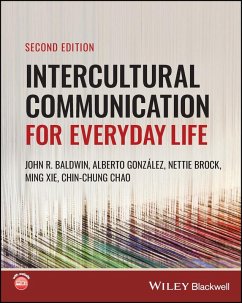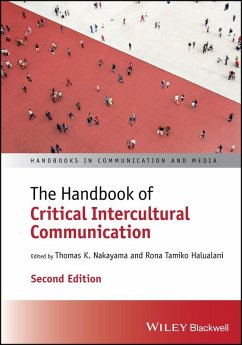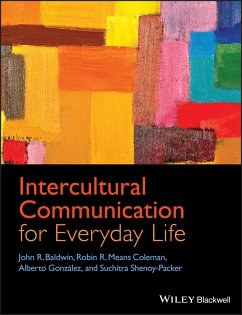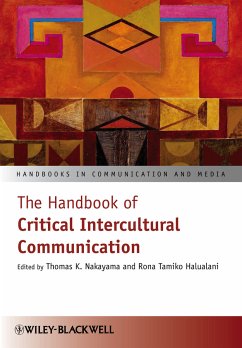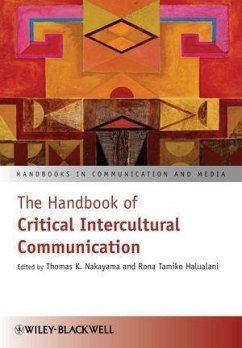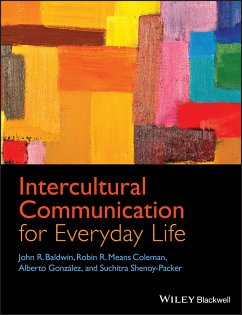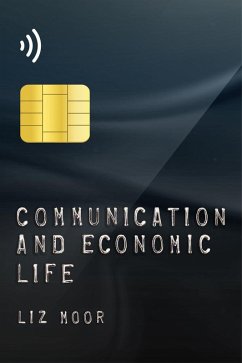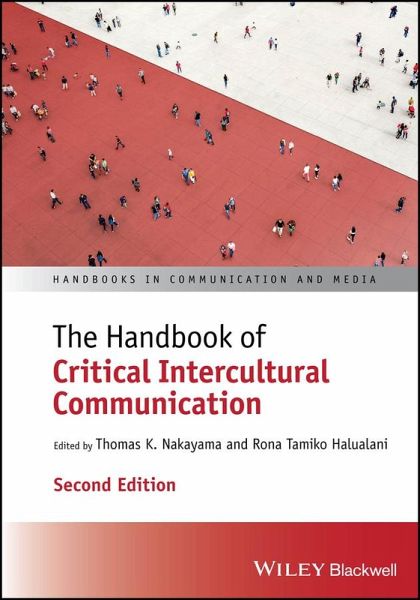
The Handbook of Critical Intercultural Communication (eBook, PDF)
Versandkostenfrei!
Sofort per Download lieferbar
175,99 €
inkl. MwSt.
Weitere Ausgaben:

PAYBACK Punkte
0 °P sammeln!
An up-to-date and comprehensive resource for scholars and students of critical intercultural communication studiesIn the newly revised second edition of The Handbook of Critical Intercultural Communication, a lineup of outstanding critical researchers delivers a one-stop collection of contemporary and relevant readings that define, delineate, and inhabit what it means to 'do critical intercultural communication.' In this handbook, you will uncover the latest research and contributions from leading scholars in the field, covering core theoretical, methodological, and applied works that give sha...
An up-to-date and comprehensive resource for scholars and students of critical intercultural communication studies
In the newly revised second edition of The Handbook of Critical Intercultural Communication, a lineup of outstanding critical researchers delivers a one-stop collection of contemporary and relevant readings that define, delineate, and inhabit what it means to 'do critical intercultural communication.' In this handbook, you will uncover the latest research and contributions from leading scholars in the field, covering core theoretical, methodological, and applied works that give shape to the arena of critical intercultural communication studies.
The handbook's contents scaffold up from historical revisitings to theorizings to inquiry and methodologies and critical projects and applications. This work invites readers to deeply immerse themselves in and reflect upon the thematic threads shared within and across each chapter. Readers will also find:
Perfect for scholars, researchers, and students of intercultural communication, intercultural studies, critical communication, and critical cultural studies, The Handbook of Critical Intercultural Communication, 2nd edition, stands as the premier resource for anyone interested in the dynamic and ever evolving field of study and praxis: critical intercultural communication studies.
In the newly revised second edition of The Handbook of Critical Intercultural Communication, a lineup of outstanding critical researchers delivers a one-stop collection of contemporary and relevant readings that define, delineate, and inhabit what it means to 'do critical intercultural communication.' In this handbook, you will uncover the latest research and contributions from leading scholars in the field, covering core theoretical, methodological, and applied works that give shape to the arena of critical intercultural communication studies.
The handbook's contents scaffold up from historical revisitings to theorizings to inquiry and methodologies and critical projects and applications. This work invites readers to deeply immerse themselves in and reflect upon the thematic threads shared within and across each chapter. Readers will also find:
- Newly included instructors' resources, including reading assignments, discussion guides, exercises, and syllabi
- Current and state-of-the-art essays introducing the book and delineating each section
- Brand-new sections on critical inquiry practices and methodologies and contemporary critical intercultural projects and topics such as settler colonialism, intersectionalities, queerness, race, identities, critical intercultural pedagogy, migration, ecologies, critical futures, and more
Perfect for scholars, researchers, and students of intercultural communication, intercultural studies, critical communication, and critical cultural studies, The Handbook of Critical Intercultural Communication, 2nd edition, stands as the premier resource for anyone interested in the dynamic and ever evolving field of study and praxis: critical intercultural communication studies.
Dieser Download kann aus rechtlichen Gründen nur mit Rechnungsadresse in D ausgeliefert werden.




